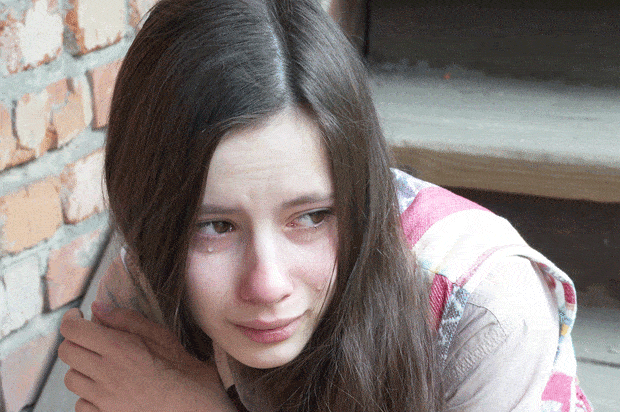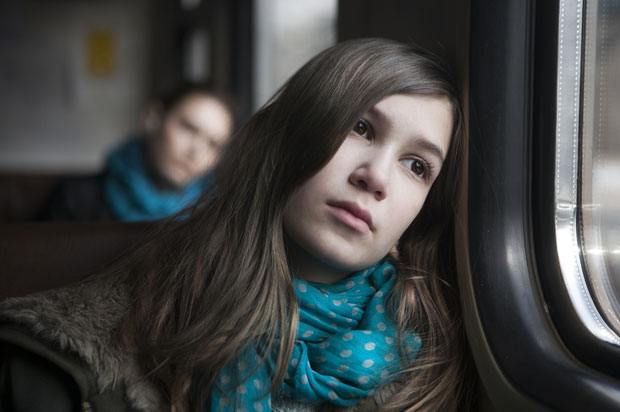Grief control: I couldn’t grieve for my sister
Cherryontop writes about struggling to admit feelings of grief after her sister died in a car crash.
True Stories

Grief can be complicated
When I was 21 my sister died in a car accident. She was 18. I had just moved away to university and was about to come home to start my summer job for a couple of weeks.
Everything happened really fast. As I took the call I remember feeling a massive sense of responsibility towards my little sister – I didn’t want to cry or react because she had no idea what was happening at the time and I didn’t want to upset her. I wanted to protect her from the truth for as long as possible. I calmly put down the phone and acted like nothing was wrong. From not wanting to cry or react I ended up not knowing how to.
How should I feel?
As my sister wasn’t my biological sister I didn’t know what to do with my grief and had no idea how I ‘should’ be feeling. She wasn’t a “real” sister, did that mean that my grief wasn’t real? Of course we had grown up together, we had shared a room, we had shared stories of our first boyfriends, first kisses, first everything’s – we were sisters, we just didn’t have the same blood. Yet, I felt as if everyone was thinking, well, she’s ok, it’s not like they were ‘real’ sisters or anything?.
Silence
Not knowing what to do with my grief stopped me from talking about it. I didn’t want people to think that I was using it to get attention or that I was wallowing. I felt like I needed to put on a brave face, ‘chin up’ and get on with things. People always say that time is a good healer; I thought that if I just got on with things then in time I would feel better. I went to work a week later and carried on like nothing had happened.
The previous year we had been working there together and I could see everyone looking at me for a response, looking to see if I was going to break down in tears, but I felt that if I could just carry on like normal then things would get back to normal faster and everything would be okay. People would forget about it and I could pretend like everything was fine. But, at the same time I was angry that everyone was just carrying on like normal. I just told myself it was a matter of time – all I had to do was get through the next few months and the feelings would pass and everything would be okay again.
Bottling it up
In reality I wasn’t fine. Most of the time I felt drunk on grief. It’s a hard emotion to explain unless you have felt it – I felt like I wasn’t really in control, like I was running on auto pilot and not thinking straight and at the same time there was a giant cave of sadness in my stomach. I withdrew from my friends, stopped going out and just stayed at home watching DVD’s in the evenings.
Although the police offered us bereavement counselling after the accident, no one in my family took it. I think we were all still in shock and maybe it was offered too early. I felt that it wasn’t my place to take it and at times I did feel okay, I wouldn’t let myself feel bad about it and my family were staying strong for the sake of each other. Nobody wanted to break down so we hardly talked about it.
Finally admitting it
Finally, I finished uni and moved to London. I got a good job, was in a stable relationship, had good friends and everything was calm for the first time in a long, time. And that’s when the grief started to hit me. It was as if I had been running and running and finally I had stopped to catch my breath and it had caught up with me. I found that I was getting emotional at strange times for no reason, I didn’t feel in control of my emotions and I didn’t understand what was going on. I kept thinking about my sister more and more – songs, movies, girls in the street all reminded me of her – and I knew that because I’d never really stopped to deal with it, it was still there.
Picture posed by model from Shutterstock.
Next Steps
- Cruse offers grief and bereavement support via phone, email, and face-to-face. You can call their free helpline on 0808 808 1677 (Monday - Friday, 9.30 - 5pm, extended to 8pm on Tuesdays, Wednesdays, and Thursdays) or visit their website for more support.
- Hope Again is a website created for young people by young people affected by bereavement. It offers a community of peer support, as well as a support service via email: [email protected]
- Marie Curie offers emotional support and practical information for anyone affected by terminal illness, and their friends and families. Call Marie Curie's helpline on 0800 090 2309 from 8am to 6pm Monday to Friday and 11am to 5pm Saturday.
- Chat about this subject on our Discussion Boards.
- Need help but confused where to go locally? Download our StepFinder iPhone app to find local support services quickly.
By cherryontop
Updated on 13-Jan-2016
No featured article














